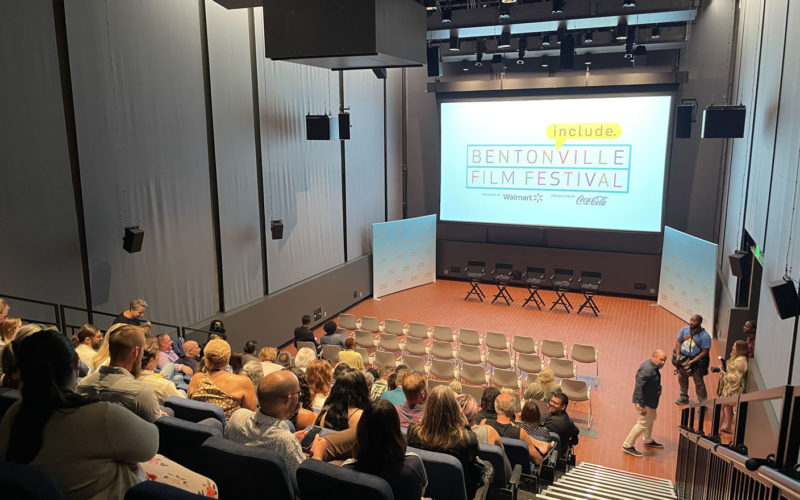April Wallace
awallace@nwaonline.com
The eighth Bentonville Film Festival, which champions underrepresented storytellers on and off screen, was an epicenter of activity after two years of operating at understated levels due to the pandemic. This year its events and screenings were well attended, some even sold out.
The first week of activity offered lots of in-person events and locations where audiences could see actors, filmmakers and industry experts face to face, while this week concludes the continued virtual programming.
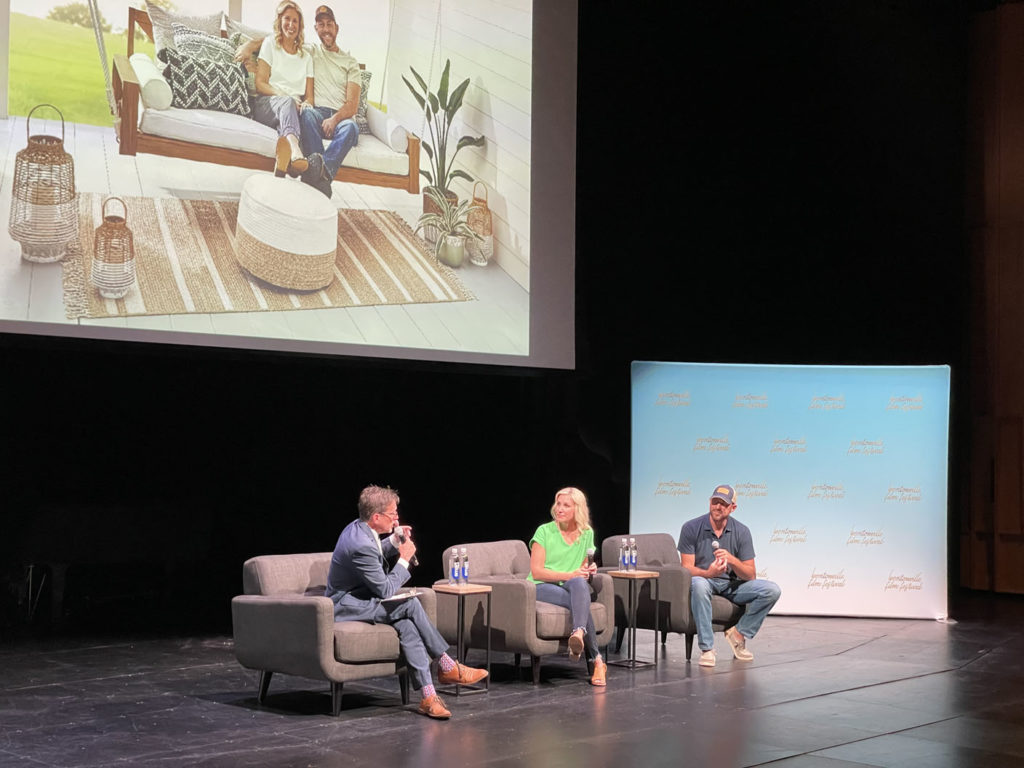
REEL MAGIC MORNINGS
Each weekday of the festival began with a celebrity coffee chat in the morning at Thaden School in Bentonville. Audiences were invited to listen to Hollywood insiders talk about what they do best, what they care about and about being in the public eye.
The first of these events began with a discussion among KUAF’s Kyle Kellams and Dave and Jenny Marrs of HGTV’s “Fixer to Fabulous.” On the show, the couple helps restore historic homes suited to the homeowners’ taste and personal stories. They talked about what makes their show resonate with other families around the country and the behind-the-scenes work, as well as what it’s like to raise a big family and live in Arkansas.
The couple is often working on four to six houses at a time, and while they hire some local workers, the majority of their staff is from Knoxville, Tenn. That means they have a week to 10-day stretches with enough people on site for the show. While shooting episodes, they change clothes between work sites to make it look like they’re visiting on different days.
On average the 43 minute show stems from 120 hours of footage, so their film crew does a lot of editing, but the couple feel strongly about keeping it from seeming all too perfect.
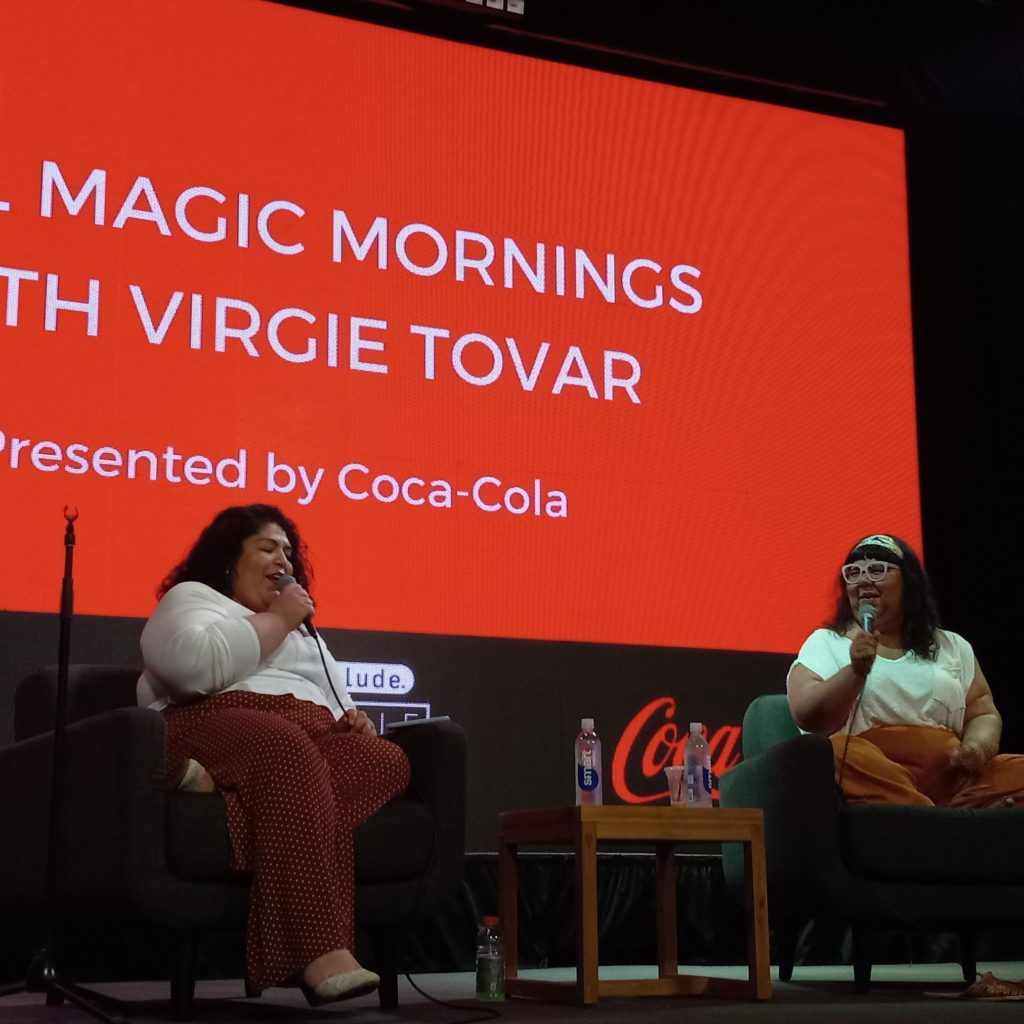
Author and activist Virgie Tovar, one of the nation’s leading experts on weight-based discrimination and body image, spoke about fat phobia, activism and embracing one’s body with joy in the June 23 event with Magdalena Arroyo of the University of Arkansas Office for Diversity and Inclusion.
Tovar said that despite around 70% of women being considered higher weight people, they are often treated as a minority within American culture. That means overweight women face discrimination in employment due to negative stereotypes and they are less likely to experience comprehensive preventative medical care because doctors are fixated on their weight.
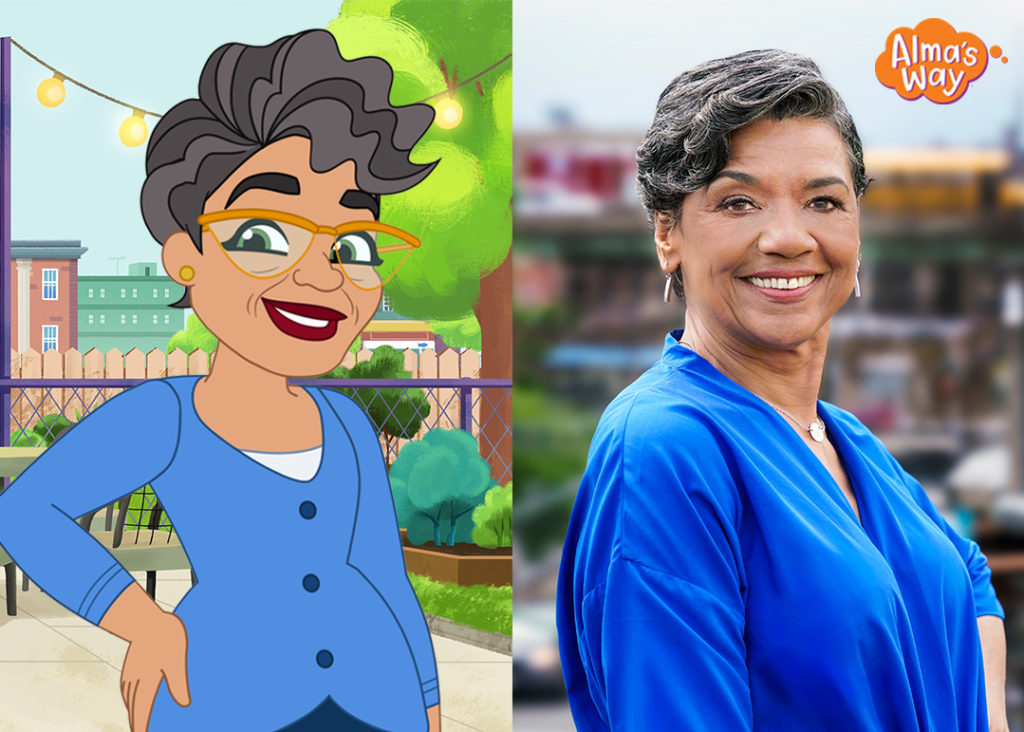
“From Bronx to Bentonville,” the final Reel Magic chat of the week, was with Sonia Manzano, who portrayed Maria on Sesame Street for 44 years, and the other creators of “Alma’s Way.”
Manzano, Ellen Doherty and Olubunmi Mia Olufemi crafted the new PBS Kids series to be centered on giving children confidence in their own brain power, as well as the importance of inclusiveness and authentic representation in kids’ media. It features Alma, a Puerto Rican girl growing up in the Bronx who goes about problem solving and thinking things through herself.
Manzano told the Northwest Arkansas Democrat-Gazette earlier that if she had seen “Alma’s Way” or another show like it as a child, her perspective might have been entirely different. As it was, dreaming of being the same things that white children did seemed taboo at the time because she didn’t see herself represented on screen.
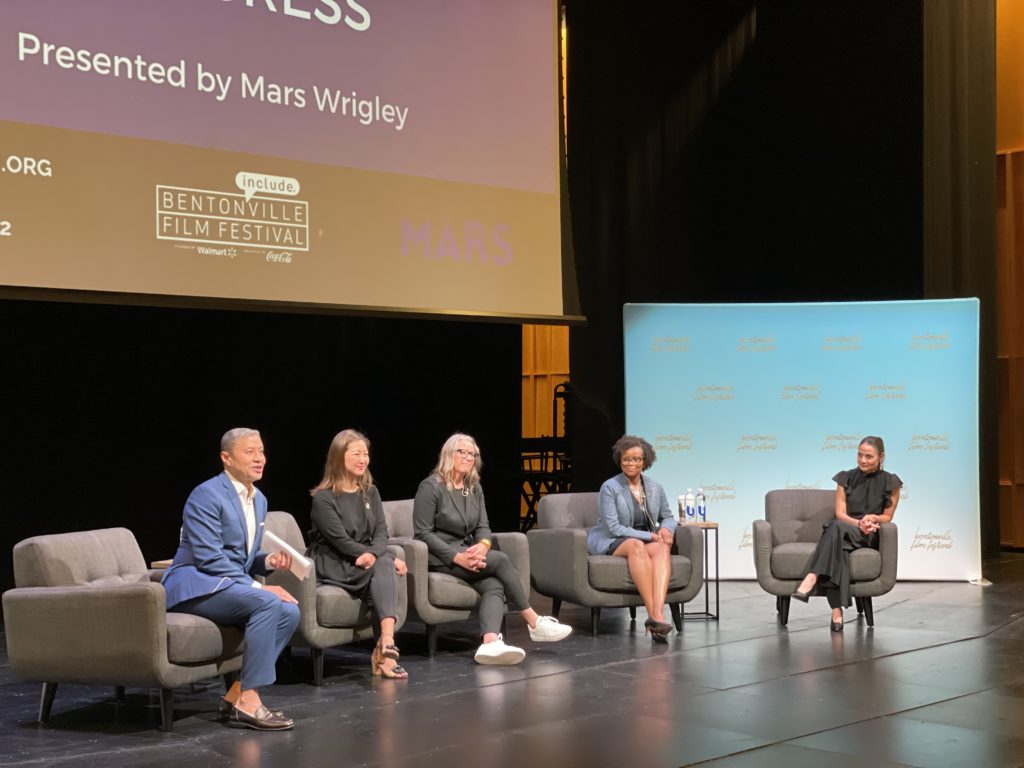
PANEL DISCUSSIONS
Topical conversations among industry leaders took place each weekday morning of the festival, also at Thaden School, with some events cropping up at the Meteor Guitar Gallery.
“Purpose Driven Progress” took place June 22, featuring female executives at the top of their industries. The brand leaders from M&M, Walmart, Coca-Cola and others spoke about how they amplify social issues and make changes in the workplace to retain talent of all backgrounds.
“Fat in Front of the Camera: Why It Matters” picked up the conversation on June 23 about how people with higher weights are depicted on screen and reiterated a point made by Virgie Tovar’s Reel Magic talk, that those with larger bodies are taught to take up as little space as possible.
Elizabeth Kilpatrick, senior vice president of the Geena Davis Institute on Gender in Media, said the Geena Davis Institute’s 2020 review of programming most viewed by children revealed that plus-sized characters were not only underrepresented, they were depicted as clumsy, poorly dressed and losers.
Other panel members Tovar, Ashlie Atkinson (“The Gilded Age”), Joy Nash (“Grey’s Anatomy,” “Twin Peaks”) and Adrienne Acevedo Lovette (“Better Call Saul”) related their own experiences on the set.
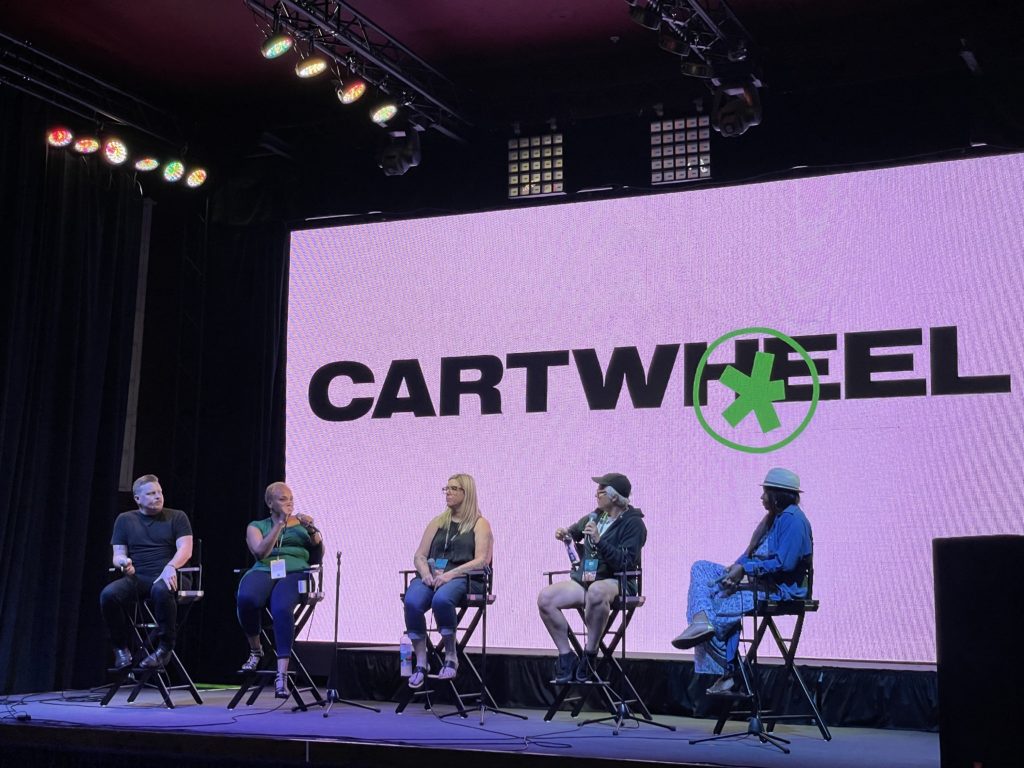
Sonia Manzano also spoke at “If She Can See It, She Can Be It” with actress Geena Davis, filmmaker Nancy Svendsen, filmmaker Jahmil Eady and Madeline Di Nonno, president and CEO of the Geena Davis Institute on June 24.
“Team Fempower: Empowering Women in Web3” a panel and an interactive discussion on NFTs (nonfungible tokens) took place at Meteor Guitar Gallery the afternoon of June 24. Nonfungible tokens are one of the nontraditional fundraising means that are more accessible to female filmmakers, BFF president Wendy Guerrero said in a previous interview.
Jordan Bayne, founder of NFT Film Squad and filmmaker of “Red Flags,” largely led the talk that focused on NFTs being far more than kickstarter funds for filmmaking. They lend more ownership and connection to the community throughout the creative making process, panelists said.
GEENA AND FRIENDS
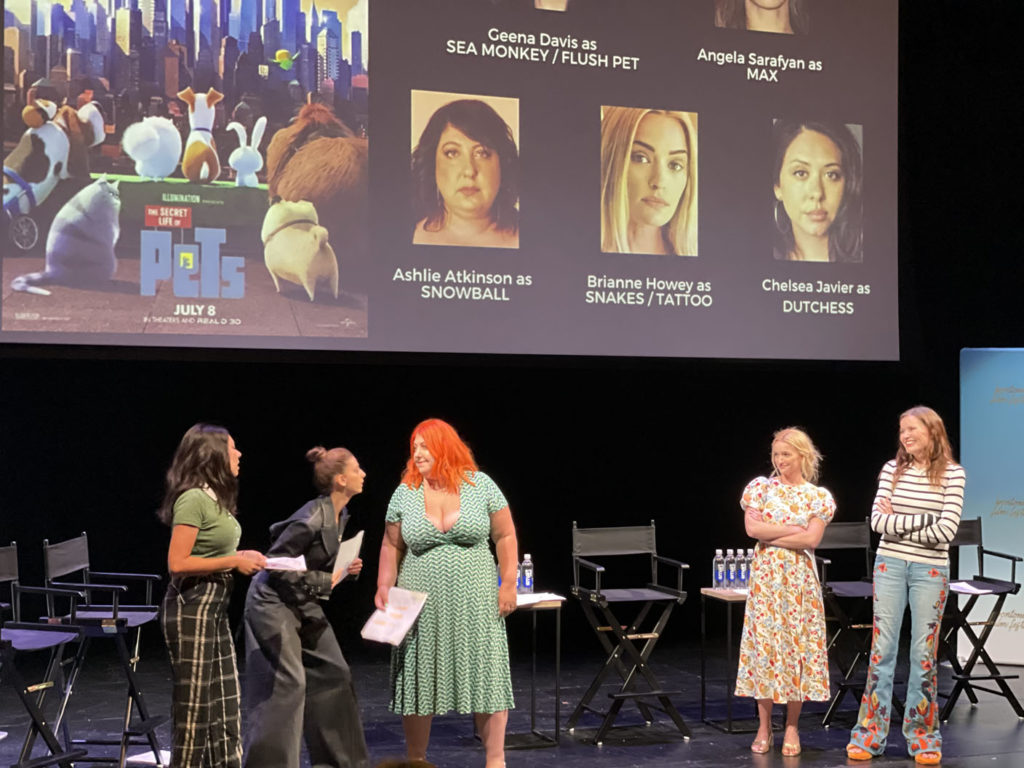
Geena and Friends, perhaps the most popular of the Bentonville Film Festival events, took place at Thaden School Theater the evening of June 23 with a star-studded cast doing an hourlong variety of table reads from male-centric movies reimagined for an all-female cast.
This year’s event featured Geena Davis with Angela Sarafyan (“Westworld”), Brianne Howey (“The Exorcist”), Chelsea Javier (“Smile or Hug”) and Ashlie Atkinson (“Gilded Age”). Together they re-created popular scenes from “The Godfather,” “The Hangover,” “Pets,” “Stuber,” “Spiderman” and “Central Intelligence.” The five actresses performed after having worked together on them for only a day.
Davis told the Northwest Arkansas Democrat-Gazette shortly ahead of the event that she thought it would be “a really fun way to show people that most roles could be played by either men or women.”
In some scenes, the differences were subtle, like casually calling each other sisters as opposed to bros, saying “hello ladies,” or mentioning their sisterhood. For instance, “we changed all the hims to hers and changed the names,” Sarafyan said. Atkinson described the task as not attempting to do male impersonation but just embodying the characters.
Other changes were more overt, though, like the chosen scene from “The Godfather.”
“The (original) ‘Godfather’ scene had a female character that was eye candy, so we deliberately chose a man for that,” Davis said. Nardeep Khurmi (“Land of Gold”) played that role.
The whole evening garnered laughs, both from the audience and the actresses. Davis concluded by saying that a lot of roles for TV and film could be played by “most anybody; it doesn’t have to be who you first think.”
FILM SCREENINGS
Moviegoers had a variety of screens on which to view festival films this year with theaters at Thaden School, The Momentary, Skylight Cinema and Walmart World Room in downtown Bentonville.
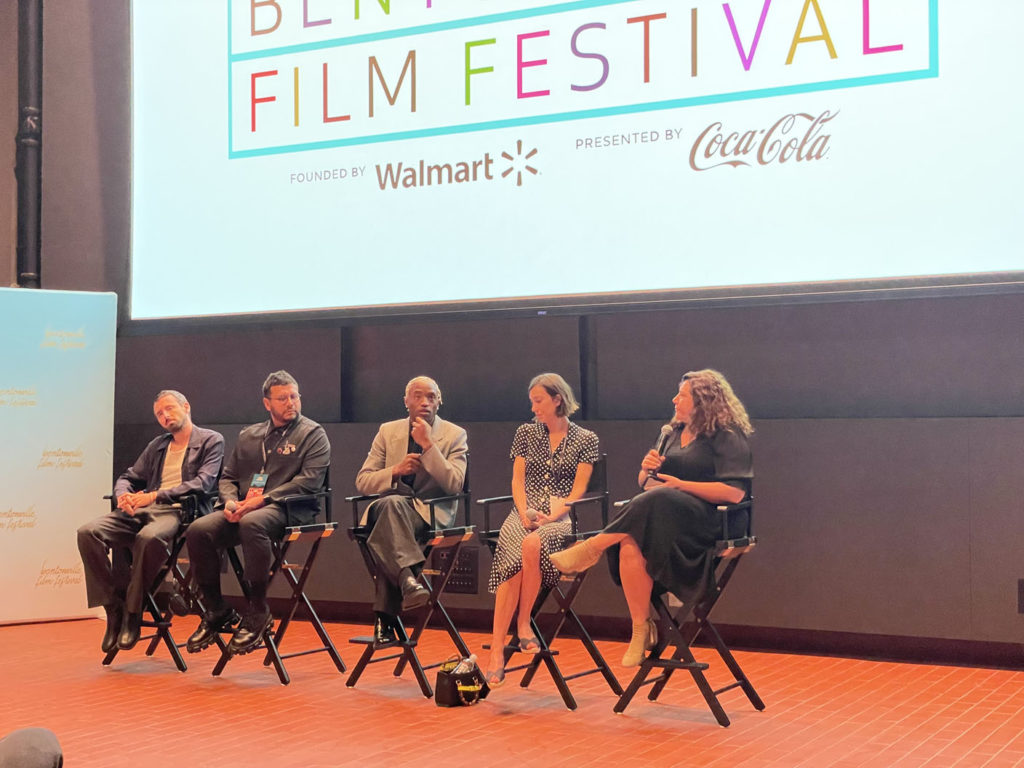
The world premiere of “The Seven Faces of Jane” was shown in Fermentation Hall at the Momentary on the festival’s opening night. The contemporary, experimental film was created by seven directors — Gillian Jacobs, who also starred in the film; Gia Coppola, granddaughter of Francis Ford Coppola; Boma Iluma; Ryan Heffington; Xan Cassavetes; Julian Acosta; Ken Jeong; and Alex Takacs — none of whom knew what the other was doing, only their placement of the segment and a crucial “story kernel” they were to base their part of it around.
Four of the seven directors attended the world premiere for a discussion about the making of the film and their part in it following the screening.
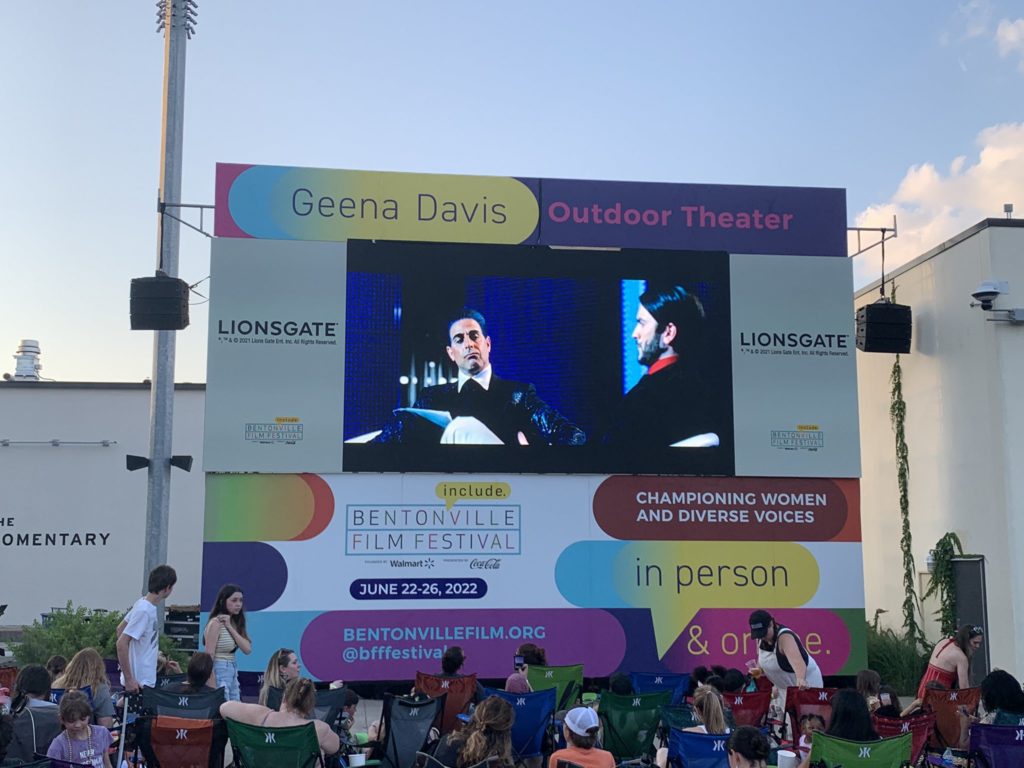
Two other films made their world premieres at BFF, including “The Good Egg,” about a woman nearing 40 who considers an unconventional egg donor after failed in vitro attempts, and “Smile or Hug,” which was about an art teacher who gets dumped on her 30th birthday and works through her loneliness with her students. Chelsea Javier, who wrote and starred in “Smile or Hug,” was among the actresses performing in the Geena and Friends table read.
A Bike and Film Social for filmmakers and community members to meet, ride and enjoy art together concluded with a screening of “As We Have Always Done,” a film that featured local cyclist Rachel Olzer.
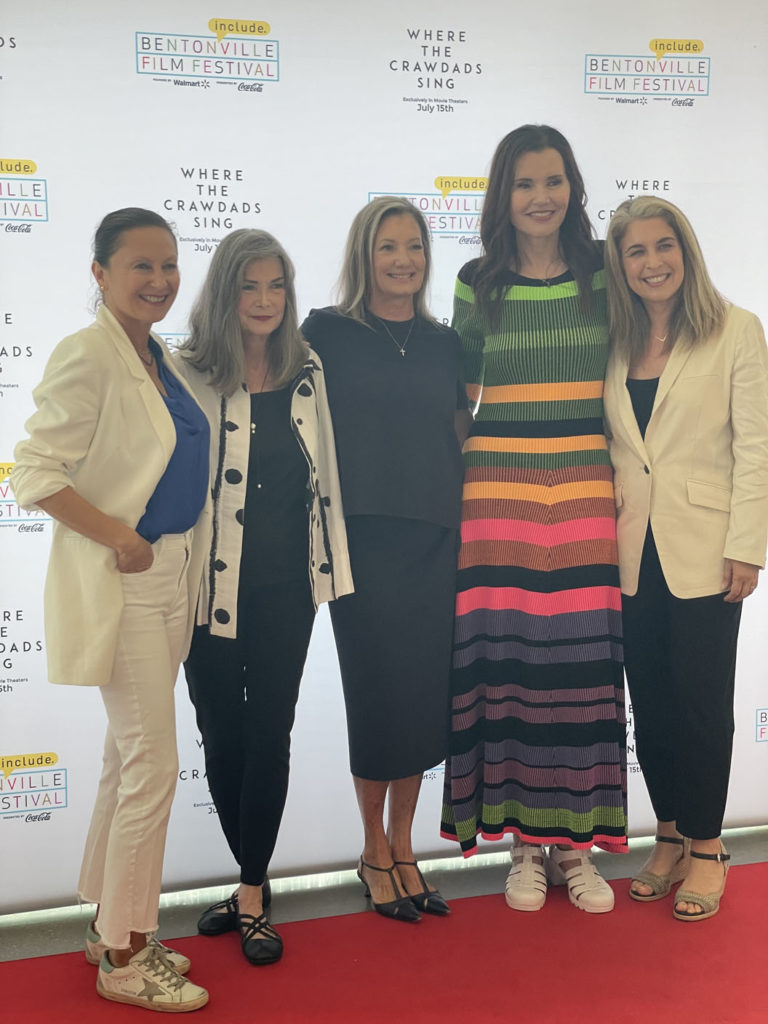
The Geena Davis Outdoor Theater and festival village opened late in the afternoon of June 23 in the courtyard of the Momentary, where lots of family favorites played on the big screen for free, including “Beetlejuice,” “Encanto” and “Mulan.” The outdoor theater did a special screening June 24 for the 10th Anniversary of “Hunger Games” with movie-related giveaways. A conversation between Geena Davis and Nina Jacobsen, director of “The Hunger Games,” was planned to take place beforehand but was moved to a part of the virtual programming of the festival.
On June 26, the final day of the festival’s in-person events, “Where the Crawdads Sing” author Delia Owens, the film’s director Olivia Newman and its producer Elizabeth Gabler came to Skylight Cinema for an extended preview screening of the movie, which will be released July 15. The three spoke about the making of the movie at the sold-out event.
AWARDS SHOW
Filmmakers, actors, producers, directors, industry hopefuls and movie aficionados gathered at the Meteor Guitar Gallery June 25 for the awards show.
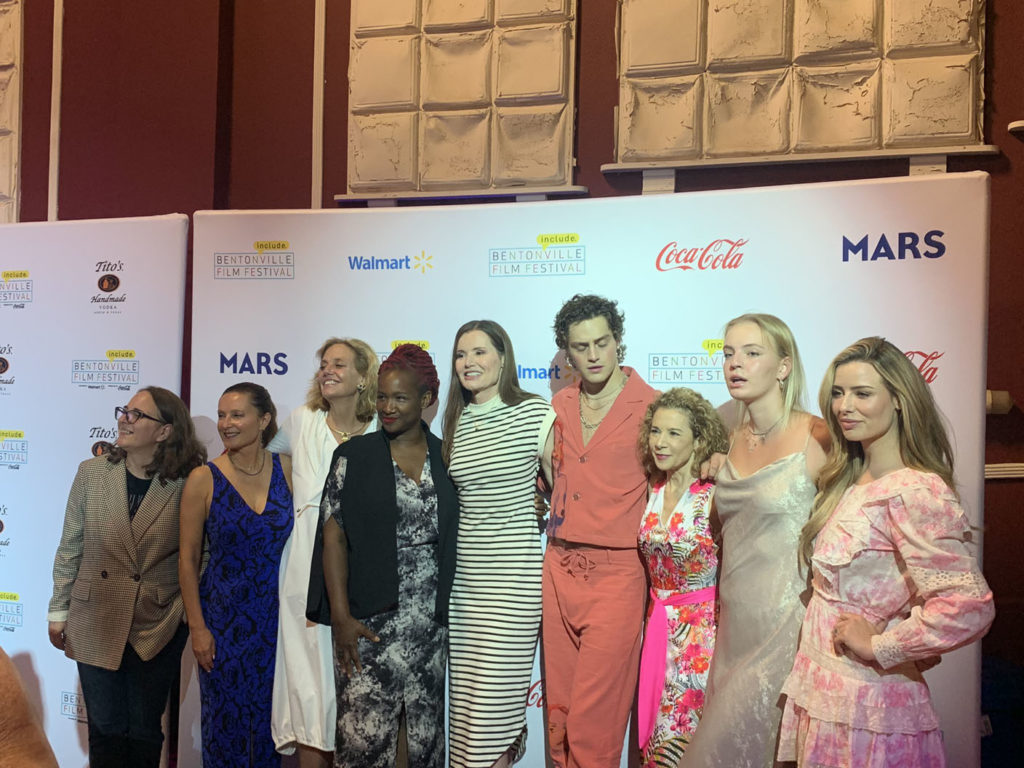
Academy Award-winning actress and festival co-founder Geena Davis said that Bentonville has been an incredibly supportive town that has welcomed people from all over the world and given them a sense of belonging. Davis noted that this year’s event had more than 100 special guests and filmmakers, and in the eight years of the festival, approximately 10,000 creative people and artists have been a part of it.
Sophia Garza-Barba, a Mexican-American filmmaker, became the first-ever recipient of the M&Ms For All Funkind grant, which was designed for up-and-coming, underrepresented content makers to create more implicit entertainment. The grant awards $20,000 and the opportunity to work with the M&Ms team on a project.
Other special honors included the Rising Star Award, which went to Fin Argus for capturing the attention of both the public and the entertainment industry, and the Rising to the Challenge Award to Effie Brown, honoring her success supporting indie film projects on and off screen.
Best Narrative Feature went to “Every Day in Kaimuki.” Director Alika Tengan and the cast were in attendance. Best Documentary Feature went to Gretchen Stoeltje’s “Shouting Down Midnight.” Best Short Film went to “Georgia,” by Jayil Pak. “Chiqui,” by Carlos Cardona won Best Episodic.

